|
|
|
Книги издательства «Cambridge University Press»
|
The growth of institutional capacity in the developing world has become a central theme in twenty-first-century social science. Many studies have shown that public institutions are an important determinant of long-run rates of economic growth. This book argues that to understand the difficulties and pitfalls of state building in the contemporary world, it is necessary to analyze previous efforts to create institutional capacity in conflictive contexts. It provides a comprehensive analysis of the process of state and nation building in Latin America and Spain from independence to the 1930s. The book examines how Latin American countries and Spain tried to build modern and efficient state institutions for more than a century — without much success. The Spanish and Latin American experience of the nineteenth century was arguably the first regional stage on which the organizational and political dilemmas that still haunt states were faced. This book provides an unprecedented perspective on the development and contemporary outcome of those state and nation building projects. |
|
In Imagining Europe, Chiara Bottici and Benoit Challand explore the formation of modern European identity. Europe has not always been there, although we have been imagining it for quite some time. Even after the birth of a polity called the European Union, the meaning of Europe remained a very much contested topic. What is Europe? What are its boundaries? Is there a specific European identity or is the EU just the name for a group of institutions? This book answers these questions, showing that in Europe's formation, myth and memory, although distinct, are often merged in a common attempt to construct an identity for its present and its future. In a time when Europe is facing an existential crisis, when its meaning is being questioned, Imagining Europe explores a vital and often unacknowledged aspect of the European project. |
|
Anders Aslund is known to make bold predictions that initially arouse controversy but soon become common wisdom. In Gorbachev's Struggle for Economic Reform (1989), he foresaw the collapse of the Soviet political and economic system. After Russia's financial crisis of 1998, observers declared the market economic experiment a failure, Aslund foresaw market economic success (Building Capitalism, 2002). In How Capitalism Was Built, 2nd Edition, he asks — and answers for the twenty-one countries he investigates: — Why did communism collapse? — Why did Russia not choose gradual reforms like China did? — Wherein lies the relative success of postcommunist transformation? — How did the oligarchs arise and decline vis-...-vis authoritarian leaders? Anyone who wants to understand the often confusing postcommunist dramas and obtain an early insight into the future will find this intellectually stimulating book useful. This edition includes updates to each chapter and new chapters on the impact of the global financial crisis and the European Union. |
|
The Herschel 400 is a list of 400 galaxies, nebulae, and star clusters, picked from over 2,500 deep-sky objects discovered and catalogued by the great eighteenth-century astronomer Sir William Herschel and his sister Caroline. It comprises 231 galaxies, 107 open clusters, 33 globular clusters, 20 planetary nebulae, 2 halves of a single planetary nebula, and 7 bright nebulae. In this guide Steve O'Meara takes the observer through the list, season by season, month by month, night by night, object by object. He works through the objects in a carefully planned and methodical way, taking in some of the most dramatic non-Messier galaxies, nebulae, and star clusters in the night sky. Ideal for astronomers who have tackled the Messier objects, this richly illustrated guide will help the amateur astronomer hone their observing skills. |
|
Since the early nineteenth century, mesmerists, mediums and psychics have exhibited extraordinary phenomena. These have been demonstrated, reported and disputed by every modern generation. We continue to wonder why people believe in such things, while others wonder why they are dismissed so easily. Extraordinary Beliefs takes a historical approach to an ongoing psychological problem: why do people believe in extraordinary phenomena? It considers the phenomena that have been associated with mesmerism, spiritualism, psychical research and parapsychology. By drawing upon conjuring theory, frame analysis and discourse analysis, it examines how such phenomena have been made convincing in demonstration and report, and then disputed endlessly. It argues that we cannot understand extraordinary beliefs unless we properly consider the events in which people believe, and what people believe about them. And it shows how, in constructing and maintaining particular beliefs about particular phenomena, we have been in the business of constructing ourselves. |

|
An understanding of the ethical implications of their work is now essential for all scientists. This accessible textbook clearly explains bioethical theories and their philosophical foundations to science students, enabling them to confidently take part in the key ethical debates of biotechnology. Over 200 activities introduce topics for personal reflection and discussion points encourage students to think for themselves and build their own arguments. Highlighting the potential pitfalls for those new to bioethics, each chapter features boxes providing factual information and outlining the philosophical background. Accompanying online podcasts by the author (two of whose podcasts on iTunesU have attracted over 3 million downloads) explain points that might be difficult for beginners. Detailed case studies provide an insight into real-life examples of bioethical problems. Within-chapter essay questions and quizzes, along with end-of-chapter review questions, allow students to check their understanding and encourage broader thinking about the topics discussed. |

|
Billions of people throughout the world are paid for their work. This book was written to explain why they earn what they earn and, in doing so, to help readers understand how they can earn more in both the short and long run. It describes wages, wage differences across groups, wage inequality, how organizations set pay and why, executive and 'superstar' pay, the difference between pay and 'total rewards' (including benefits, opportunities for growth, colleagues and working conditions), compensation in nonprofits, and the differences between the cost of compensation to organizations and the value employees place on that compensation. It also offers tips on what an individual can do to earn more. |
|
In this remarkably wide-ranging book Professor Lowenthal analyses the ever-changing role of the past in shaping our lives. A heritage at once nurturing and burdensome, the past allows us to make sense of the present whilst imposing powerful constraints upon the way that present develops. Some aspects of the past are celebrated, others expunged, as each generation reshapes its legacy in line with current needs. Drawing on all the arts, the humanities and the social sciences, the author uses sources as diverse as science fiction and psychoanalysis to examine how rebellion against inherited tradition has given rise to the modern cult of preservation and pervasive nostalgia. Profusely illustrated, The Past is a Foreign Country shows that although the past has ceased to be a sanction for inherited power or privilege, as a focus of personal and national identity and as a bulwark against massive and distressing change it remains as potent a force as ever in human affairs. |
|
For many thinkers from antiquity until the Enlightenment, no meaningful distinction between philosophy and religion was possible. Instead, the concept of a philosophical religion was strongly influential on pagan, Jewish, Christian and Muslim philosophers alike. Carlos Fraenkel provides the first account of this concept and traces its history back to Plato, the Jewish Philo of Alexandria and the Christians Clement of Alexandria and Origen. He then follows it through the medieval period in both Islamic and Jewish forms; he closely analyses its appearance in the work of Spinoza in the early modern period; and he shows how it largely disappeared after the Enlightenment, when religion began to be increasingly regarded as a promoter of ignorance and superstition from which philosophy needed to be liberated. His rich and wide-ranging book will appeal to anyone interested in how philosophy has interacted with Jewish, Christian and Muslim religious traditions over the centuries. |
|
What light does nearly 25 years of scientific study of the Exxon Valdez oil spill shed on the fate and effects of a spill? How can the results help in assessing future spills? How can ecological risks be assessed and quantified? In this, the first book on the effects of Exxon Valdez in 15 years, scientists directly involved in studying the spill provide a comprehensive perspective on, and synthesis of, scientific information on long-term spill effects. The coverage is multidisciplinary, with chapters discussing a range of issues including effects on biota, successes and failures of post-spill studies and techniques, and areas of continued disagreement. An even-handed and critical examination of more than two decades of scientific study, this is an invaluable guide for studying future oil spills and, more broadly, for unraveling the consequences of any large environmental disruption. |
|
How does Google sell ad space and rank webpages? How does Netflix recommend movies and Amazon rank products? How can you influence people on Facebook and Twitter and can you really reach anyone in six steps? Why doesn't the Internet collapse under congestion and does it have an Achilles' heel? Why are you charged per gigabyte for mobile data and how can Skype and BitTorrent be free? How are cloud services so scalable and why is WiFi slower at hotspots than at home? Driven by twenty real-world questions about our networked lives, this book explores the technology behind the multi-trillion dollar Internet and wireless industries. Providing easily understandable answers for the casually curious, alongside detailed explanations for those looking for in-depth discussion, this thought-provoking book is essential reading for students in engineering, science and economics, for network industry professionals and anyone curious about how technological and social networks really work. |
|
Roderick Beaton re-examines Lord Byron's life and writing through the long trajectory of his relationship with Greece. Beginning with the poet's youthful travels in 1809-1811, Beaton traces his years of fame in London and self-imposed exile in Italy, that culminated in the decision to devote himself to the cause of Greek independence. Then comes Byron's dramatic self-transformation, while in Cephalonia, from Romantic rebel to new statesman, subordinating himself for the first time to a defined, political cause, in order to begin laying the foundations, during his 'hundred days' at Missolonghi, for a new kind of polity in Europe — that of the nation-state as we know it today. Byron's War draws extensively on Greek historical sources and other unpublished documents, to tell an individual story that also offers a new understanding of the significance that Greece had for Byron, and of Byron's contribution to the origin of the present-day Greek state. |
|
This book presents a new history of the most important conflict in European affairs during the 1930s, the Spanish Civil War. It describes the complex origins of the conflict, the collapse of the Spanish Republic and the outbreak of the only mass worker revolution in the history of Western Europe. Stanley Payne explains the character of the Spanish revolution and the complex web of republican politics, while also examining the development of Franco's counter-revolutionary dictatorship. Payne gives attention to the multiple meanings and interpretations of war and examines why the conflict provoked such strong reactions at the time, and long after. The book also explains the military history of the war and its place in the history of military development, the non-intervention policy of the democracies and the role of German, Italian and Soviet intervention, concluding with an analysis of the place of the war in European affairs, in the context of twentieth-century revolutionary civil wars. |
|
Since 9/11, the Jordanian Abu Muhammad al-Maqdisi (b. West Bank, 1959) has emerged as one of the most important radical Muslim thinkers alive today. While al-Maqdisi may not be a household name in the West, his influence amongst like-minded Muslims stretches across the world from Jordan — where he lives today — to Southeast Asia. His writings and teachings on Salafi Islam have inspired terrorists from Europe to the Middle East. This groundbreaking book, which is the first comprehensive assessment of al-Maqdisi, his life, ideology and influence, is based on his extensive writings and interviews with the author. It is a serious and intense work of scholarship that uses this considerable archive to explain and interpret al-Maqdisi's particular brand of Salafism. More broadly, the book offers an alternative, insider perspective on the rise of radical Islam, with a particular focus on Salafi opposition movements in Saudi Arabia and Jordan. |

|
Augustus, Rome's first emperor, is one of the great figures of world history and one of the most fascinating. In this lively and concise biography Karl Galinsky examines Augustus' life from childhood to deification. He chronicles the mosaic of vicissitudes, challenges, setbacks and successes that shaped Augustus' life, both public and private. How did he use his power? How did he manage to keep re-inventing himself? What kind of man was he? A transformative leader, Augustus engineered profound change in Rome and throughout the Mediterranean world. No one would have expected such vast achievements from the frail and little-known eighteen-year-old who became Caesar's heir amid turmoil and crisis. A mere thirteen years later, after defeating Antony and Cleopatra, he had, in his words, power over all things. |
|
The twenty-first century is replete with uncertainty and complexity: game-changing events and trends are transforming the world beyond recognition. For the first time in human history more people live in cities than in the countryside and greater numbers suffer from obesity than from hunger. Emerging economies now represent half of the global economy and during the next few decades India will be the biggest country in terms of population, China the largest in output and the United States the richest among the major economies on a per capita income basis. Food and water shortages will likely become humankind's most important challenge. In this accessible introduction, Mauro Guillen and Emilio Ontiveros deploy the tools of economics, sociology and political science to provide an analytical perspective on both the problems and opportunities facing business in the modern world. |
|
In this thought-provoking book, Mona Siddiqui reflects upon key themes in Islamic law and theology. These themes, which range through discussions about friendship, divorce, drunkenness, love, slavery and ritual slaughter, offer fascinating insights into Islamic ethics and the way in which arguments developed in medieval juristic discourse. Pre-modern religious works contained a richness of thought, hesitation and speculation on a wide range of topics, which were socially relevant but also presented intellectual challenges to the scholars for whom God's revelation could be understood in diverse ways. These subjects remain relevant today, for practising Muslims and scholars of Islamic law and religious studies. Mona Siddiqui is an astute and articulate interpreter who relays complex ideas about the Islamic tradition with great clarity. Her book charts her own journey through the classical texts and reflects upon how the principles expounded there have guided her own thinking, teaching and research. |
|
The institution of marriage is at a crossroads. Across most of the industrialized world, unmarried cohabitation and nonmarital births have skyrocketed while marriage rates are at record lows. These trends mask a new, idealized vision of marriage as a marker of success as well as a growing class divide in childbearing behavior: the children of better educated, wealthier individuals continue to be born into relatively stable marital unions while the children of less educated, poorer individuals are increasingly born and raised in more fragile, nonmarital households. The interdisciplinary approach offered by this edited volume provides tools to inform the debate and to assist policy makers in resolving questions about marriage at a critical juncture. Drawing on the expertise of social scientists and legal scholars, the book will be a key text for anyone who seeks to understand marriage as a social institution and to evaluate proposals for marriage reform. |
|
What if the Hebrew Bible wasn't meant to be read as revelation? What if it's not really about miracles or the afterlife — but about how to lead our lives in this world? The Philosophy of Hebrew Scripture proposes a new framework for reading the Bible. It shows how biblical authors used narrative and prophetic oratory to advance universal arguments about ethics, political philosophy and metaphysics. It offers bold new studies of biblical narratives and prophetic poetry, transforming forever our understanding of what the stories of Abel, Abraham, Jacob, Joseph, Moses and David and the speeches of Isaiah and Jeremiah, were meant to teach. The Philosophy of Hebrew Scripture assumes no belief in God or other religious commitment. It assumes no previous background in Bible. It is free of disciplinary jargon. Open the door to a book you never knew existed. You'll never read the Bible the same way again. |
|
A Concise History of Modern India by Barbara D. Metcalf and Thomas R. Metcalf, has become a classic in the field since it was first published in 2001. As a fresh interpretation of Indian history from the Mughals to the present, it has informed students across the world. In the third edition of the book, a final chapter charts the dramatic developments of the last twenty years, from 1990 through the Congress electoral victory of 2009, to the rise of the Indian high-tech industry in a country still troubled by poverty and political unrest. The narrative focuses on the fundamentally political theme of the imaginative and institutional structures that have successively sustained and transformed India, first under British colonial rule and then, after 1947, as an independent country. Woven into the larger political narrative is an account of India's social and economic development and its rich cultural life. |
|